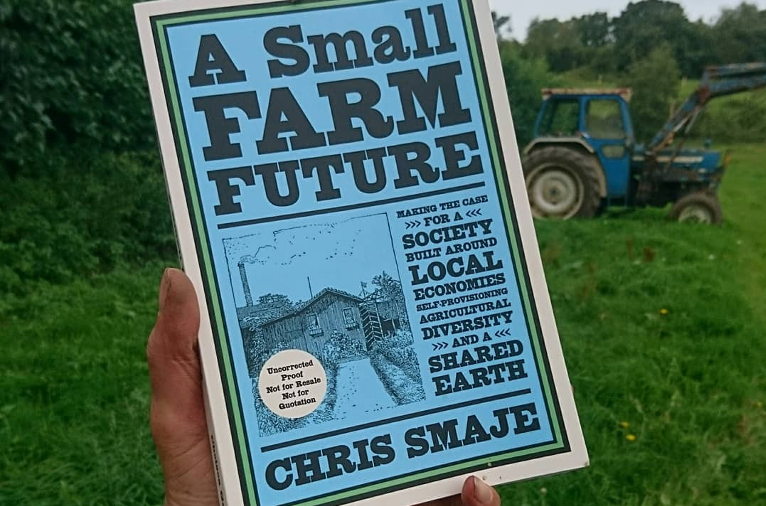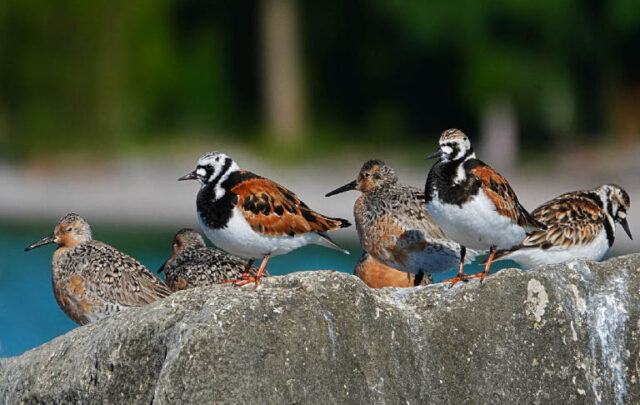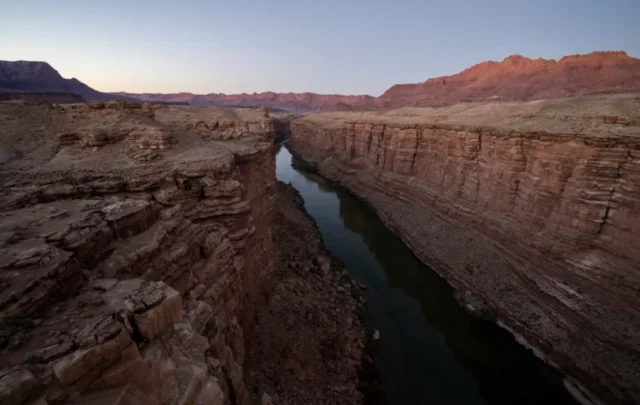…is a vegan diet. Well, at least it is according to Joseph Poore. But I have an alternative suggestion. The single biggest way to reduce your impact on planet Earth is to stop thinking there’s a single biggest way to reduce your impact on planet Earth, or that bang for your buck metrics of this kind are helpful in formulating how best to live.
Here, I’ll elaborate that suggestion, grounding the discussion in the debate about veganism versus livestock farming. The debate gets a lot of airtime, and I’ll only touch lightly on a few aspects of it here. I say a little more about it in Chapter 8 of my book A Small Farm Future. As is often the case, it’s potentially endless, because the assumptions people bring to it and the contexts they apply them to are different. But hopefully I can at least clarify a few of those assumptions and contexts here.
Poore co-authored a widely-publicized paper a couple of years back that argued livestock products from even the best performing commercial farms have higher impacts across various environmental indicators than their vegetable counterparts (eg. each gramme of protein from beef has a higher impact on greenhouse gas emissions, land use, soil acidification, water eutrophication and scarce water drawdown than a corresponding gramme of protein from pulses). There are some aspects of the paper I’d quibble with, but by and large I don’t think there’s anything that’s demonstrably incorrect factually about the claims it makes (I can’t honestly say the same about some of Poore’s wider claims reported in the media).
However, as I said above, context is everything. So if your focus is the environmental impact of each unit of protein from ‘commercial farms’ of different styles, then without doubt the bean farm outdoes the beef one. But suppose you’re a smallholder living a low energy life, not a commercial beef farmer, and suppose you keep a cow or two. Your cows could help you do all or any of these things:
- save work (including carbon-intensive machine work) by routing fertility around the farm
- balance fertility in a timely way over the year (applying the summer’s surplus to the spring’s deficit)
- turn inedible or harmful growth (unused marginal grazing, weeds) into food or fibre
- help you manage your farmland in a low carbon or possibly even carbon-negative way
- turn short-run or low value produce into longer-run or higher value produce (lard, butter, cheese) that improves your quality of life
- provide transport and traction (oxen)
- furnish useful coproducts (horn, bone, sinew, gut etc.)
- provide a store of value and wealth
- provide a source of companionship and pleasure…
…oh yes, and maybe provide some meat or milk too.
If you somehow factor all that into your calculations, then keeping cows may not look quite such a shabby option after all – especially since many of the points above are potentially carbon saving.
The same point applies to other kinds of farm livestock, all of which have their niche on the non-commercial farm as tappers, cyclers or producers of nutrients or other useful matter that are impossible or laborious for people to access directly. Their meat or other edible products are the bonus skimmed from the top of a larger, low-energy ecological labour.
But should you factor all that into your calculations? It’s not as if you’ll find a packet of multipurpose smallholder cow mince in the fresh meat aisle at Tesco’s, for reasons copiously analyzed over the years on this blog.
Meanwhile, the whole issue has become hyper-politicized on numerous fronts. On the one hand there’s the “Joe Biden Stole My Hamburger” brigade of entitled consumerism that’s been in the news lately, coopted by a rightwing politics of personal choice and freedom. On the other there’s the “pasture-fed beef can feed the world and sequester all our carbon emissions at the same time” shtick of regen-ag ultras. And on the third hand (three hands being a useful trait for a farmer) there’s the vegan “single biggest way to reduce your impact” or “cows are worse than cars” position.
None of these lines of argument withstand much scrutiny. It probably is true that if you find yourself in the supermarket in need of protein and you care about the intricate biotic web of the world and the human place within it then you’re better off buying beans than beef. And if the idea of not buying something to lower your environmental impact offends your sense of personal choice and freedom, then you probably shouldn’t be pushing a little cart around the supermarket picking stuff that other people have grown for you off the shelves and then standing in line to hand over your hard-earned cash to the giant corporate concern that owns it.
But I think we need to get beyond this arena of what I call ‘shopping aisle ethics’. If enough people care about the intricate biotic web of the world and the human place within it, then the multipurpose smallholder livestock-raising I mentioned earlier will become normalized by design because – as argued at length throughout my book – it’s hard to see a better way of providing for ourselves while caring adequately for that web than creating small farm-based communities, and low-energy smallholdings lacking in livestock are less efficient and more laborious places than ones that have some. Plus maybe you’ll find some real choice and freedom on your own small farm.
If, on the other hand, enough people don’t care about the intricate biotic web, then multipurpose smallholder livestock-raising will probably also become normalized, this time by default, because we’ll blow ourselves through the planetary boundaries that make other ways of life feasible, and folks with their noses to the grindstone will raise livestock to do a job of work.
Either way, we’ll be eating a lot less meat than consumers in the rich countries do today, and we’ll be worrying less about the single biggest way to reduce our impact on planet Earth, and a little more about the single biggest next job on the farm. If the latter is the main thing we’re worrying about, then the remaining denizens of ‘Planet Earth’ will probably have less to worry about from us.
Finally, a large part of the climate case against meat has to do with methane emissions from ruminants, but – as I discuss in more detail in A Small Farm Future – the conventions of methane accounting easily lead us to overstate the climate forcing impact of livestock and understate that of fossil fuels and other non-agricultural sources (which produce more methane than livestock globally anyway). But the wider issue is that the global fossil fuel economy underlies and enables the outsized global livestock economy. Without the former, we’d have to source much of our fibre, fertilizer and energy for industry and transport from the lands where we live, and this would put a constraint on the livestock we could raise on those lands that fossil fuels effectively remove.
So perhaps, after all, I’ve argued my way to the opposite of my opening gambit. There is one single biggest way to reduce your impact on the Earth – dispensing with fossil fuels. If we do that, livestock numbers will pretty much take care of themselves and will have minimal environmental impacts.
However, to make that happen isn’t a ‘single’ thing, and certainly not a thing that can be done by a simple choice in the shopping aisle. Instead, it’s a journey of many steps. And the journey will end for many people with a small farm where they live and work. For those with a taste for meat the good news is that when they get there they can raise a little livestock. In fact, they’d probably be unwise not to. The livestock they can feasibly raise won’t amount to a hill of beans as much meat as people in wealthy countries are used to eating at present. But if they’ve raised it themselves, with minimal off-farm inputs and maximal on-farm benefits, I think it’ll taste all the better gramme for gramme. Same goes for beans.






